 W
WRafael Alberti Merello was a Spanish poet, a member of the Generation of '27. He is considered one of the greatest literary figures of the so-called Silver Age of Spanish Literature, and he won numerous prizes and awards. He died aged 96. After the Spanish Civil War, he went into exile because of his Marxist beliefs. On his return to Spain after the death of Franco, he was named Hijo Predilecto de Andalucía in 1983 and Doctor Honoris Causa by the Universidad de Cádiz in 1985.
 W
WFernando Macarro Castillo, better known by his pseudonym Marcos Ana, was a Spanish poet and is considered by numerous sources Spain's longest serving political prisoner. Under the Francoist Spain, he was convicted of first degree murder of three people at the age of 19 in 1939, crimes he always denied having committed.
 W
WLouis Aragon was a French poet who was one of the leading voices of the surrealist movement in France. He co-founded with André Breton and Philippe Soupault the surrealist review Littérature. He was also a novelist and editor, a long-time member of the Communist Party and a member of the Académie Goncourt.
 W
WJohannes Robert Becher was a German politician, novelist, and poet. He was affiliated with the Communist Party of Germany (KPD) before World War II. At one time, he was part of the literary avant-garde, writing in an expressionist style.
 W
WKonstantin Biebl was a Czech poet and writer. His first collection of poems was released in 1923, and his last in 1951, the year of his death by suicide. During that time he also travelled widely as a reporter. Biebl was a member of the Communist Party Czechoslovakia, and was closely associated with other Czech Communist writers and poets including Jiří Wolker and Vítězslav Nezval.
 W
WChristopher Caudwell was the pseudonym of Christopher St John Sprigg, a British Marxist writer.
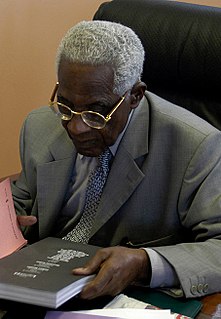 W
WAimé Fernand David Césaire was a Francophone and French poet, an Afro-Caribbean author and politician from the region of Martinique. He was "one of the founders of the négritude movement in Francophone literature". His works include the book-length poem Cahier d'un retour au pays natal (1939), Une Tempête, a response to Shakespeare's play The Tempest, and Discours sur le colonialisme, an essay describing the strife between the colonizers and the colonized. His works have been translated into many languages.
 W
WRupert John Cornford was an English poet and communist. He was the son of Francis Cornford and Frances Cornford, and was a great-grandson of Charles Darwin and Emma Darwin. During the first year of the Spanish Civil War, he was a member of the POUM militia and later the International Brigades. He died while fighting against the Nationalists, at Lopera, near Córdoba.
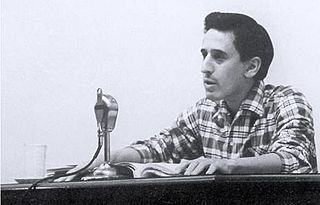 W
WRoque Antonio Dalton García, born Roque Antonio García, better known as Roque Dalton, was a Salvadoran poet, essayist, journalist, communist activist, and intellectual. He is considered one of Latin America's most compelling poets. He wrote emotionally strong, sometimes sarcastic, and image-loaded works dealing with life, death, love, and politics.
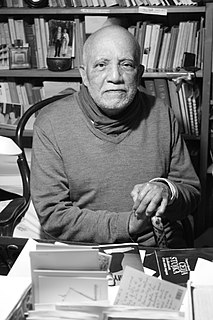 W
WRené Depestre is a Haitian poet and former communist activist. He is considered to be one of the most prominent figures in Haitian literature. He lived in Cuba as an exile from the Duvalier regime for many years and was a founder of the Casa de las Américas publishing house. He is best known for his poetry.
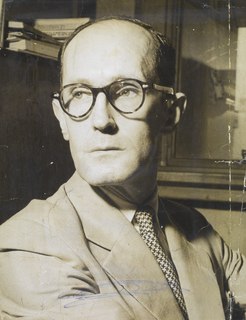 W
WCarlos Drummond de Andrade (October 31, 1902 – August 17, 1987) was a Brazilian poet and writer, considered by some as the greatest Brazilian poet of all time. He has become something of a national cultural symbol in Brazil, where his widely influential poem "Canção Amiga" has been featured on the 50-cruzado novo bill.
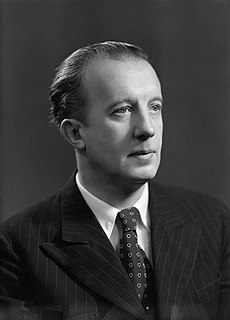 W
WPaul Éluard, born Eugène Émile Paul Grindel, was a French poet and one of the founders of the Surrealist movement.
 W
WFaiz Ahmad Faiz MBE, NI (Urdu: فَیض احمد فَیض ), was a Pakistani Muslim Marxist, poet, and author in Urdu. He was one of the most celebrated writers of the Urdu language in Pakistan. Outside literature, he has been described as "a man of wide experience" having been a teacher, an army officer, a journalist, a trade unionist and a broadcaster.
 W
WLuis (Leopoldo) Franco was an autodidact, a self-made intellectual, essayist, and poet.
 W
WLouis Fürnberg was a Czechoslovakian-German writer, poet and journalist, composer and diplomat. He wrote the Lied der Partei, the song that served for years as the official anthem of the East German ruling Socialist Unity Party (SED).
 W
WJohan Nordahl Brun Grieg was a Norwegian poet, novelist, dramatist, journalist and political activist. He was a popular author and a controversial public figure. He served in World War II as a war correspondent and was killed while on a bombing mission to Berlin.
 W
WNicolás Cristóbal Guillén Batista was a Cuban poet, journalist, political activist, and writer. He is best remembered as the national poet of Cuba.
 W
WJoaquín Gutiérrez Mangel was a Costa Rican writer who won multiple awards, and whose children's book Cocorí has been translated into ten languages. In addition to writing children's books, Gutiérrez was a chess champion, war correspondent, journalist, story-teller, translator, professor, and communist activist.
 W
WFrantišek Halas was one of the most significant Czech lyric poets of the 20th century, an essayist, and a translator.
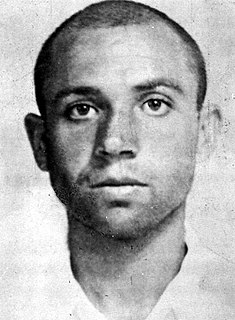 W
WMiguel Hernández Gilabert was a 20th-century Spanish-language poet and playwright associated with the Generation of '27 and the Generation of '36 movements. Born and raised in a family of low resources, he was self-taught in what refers to literature, and struggled against an unfavourable environment to build up his intellectual education, such as a father who physically abused him for spending time with books instead of working, and who took him out of school as soon as he finished his primary education. At school, he became a friend of Ramón Sijé, a well-educated boy who lent and recommended books to Hernández, and whose death would inspire his most famous poem, Elegy.
 W
WNâzım Hikmet Ran, commonly known as Nâzım Hikmet, was a Turkish poet, playwright, novelist, screenwriter, director and memoirist. He was acclaimed for the "lyrical flow of his statements". Described as a "romantic communist" and "romantic revolutionary", he was repeatedly arrested for his political beliefs and spent much of his adult life in prison or in exile. His poetry has been translated into more than fifty languages.
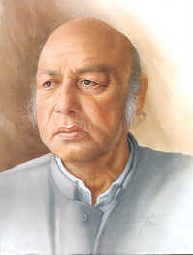 W
WHabib Jalib was a Pakistani revolutionary poet, left-wing activist and politician who opposed martial law, authoritarianism and state oppression. Pakistani poet Faiz Ahmed Faiz said that he was the poet of the masses. He opposed military coups and administrators and was duly jailed several times.
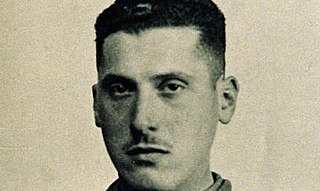 W
WSam Lesser was a British journalist and veteran of the Spanish Civil War's International Brigades. Lesser was one of the last surviving British veterans of the Spanish Civil War, and went on to serve as chair of the International Brigade Memorial Trust (IBMT), and write for the Daily Worker and its successor, the Morning Star.
 W
WMao Zedong, also known as Chairman Mao, was a Chinese communist revolutionary who was the founder of the People's Republic of China (PRC), which he ruled as the chairman of the Communist Party of China from its establishment in 1949 until his death in 1976. Ideologically a Marxist–Leninist, his theories, military strategies, and political policies are collectively known as Maoism.
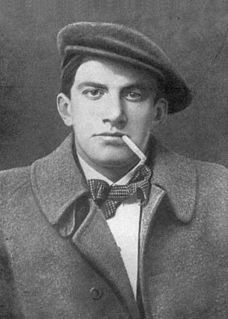 W
WVladimir Vladimirovich Mayakovsky was a Russian and Soviet poet, playwright, artist, and actor.
 W
WRicardo Eliécer Neftalí Reyes Basoalto, better known by his pen name and, later, legal name Pablo Neruda, was a Chilean poet-diplomat and politician who won the Nobel Prize for Literature in 1971. Neruda became known as a poet when he was 13 years old, and wrote in a variety of styles, including surrealist poems, historical epics, overtly political manifestos, a prose autobiography, and passionate love poems such as the ones in his collection Twenty Love Poems and a Song of Despair (1924).
 W
WVítězslav Nezval was one of the most prolific avant-garde Czech writers in the first half of the twentieth century and a co-founder of the Surrealist movement in Czechoslovakia.
 W
WPier Paolo Pasolini was an Italian film director, poet, writer, and intellectual, who also distinguished himself as an actor, journalist, novelist, playwright, and political figure. He remains a controversial personality in Italy due to his blunt style and the focus of some of his works on taboo sexual matters. He was an established major figure in European literature and cinematic arts. His murder prompted an outcry in Italy and its circumstances continue to be a matter of heated debate.
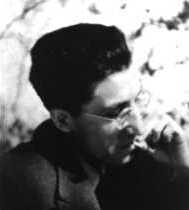 W
WCesare Pavese was an Italian novelist, poet, short story writer, translator, literary critic, and essayist
 W
WAlexander Penn was an Israeli poet.
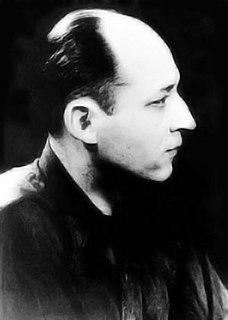 W
WBenjamin Péret was a French poet, Parisian Dadaist and a founder and central member of the French Surrealist movement with his avid use of Surrealist automatism.
 W
WSalvatore Quasimodo was an Italian poet and translator. In 1959, he won the Nobel Prize in Literature "for his lyrical poetry, which with classical fire expresses the tragic experience of life in our own times". Along with Giuseppe Ungaretti and Eugenio Montale, he was one of the foremost Italian poets of the 20th century.
 W
WMarko Ristić was a Serbian surrealist poet, writer, publicist and ambassador.
 W
WYiannis Ritsos was a Greek poet and left-wing activist and an active member of the Greek Resistance during World War II.
 W
WHenriette Goverdine Anna "Jet" Roland Holst-van der Schalk (1869–1952) was a Dutch poet and communist. She was nominated for the Nobel Prize in Literature.
 W
WMarcelino dos Santos was a Mozambican poet, revolutionary, and politician. As a young man he travelled to Portugal, and France for an education. He was a founding member of the Frente de Libertação de Moçambique, in 1962, and served as the party's deputy president from 1969 to 1977. He was Minister of Economic Development in the late 1970s, Frelimo Political Bureau member in charge of the economy in the early 1980s, Chairman of the country's parliament, the Assembly of the Republic, from 1987 to 1994, and, as of 1999, remained a member of the Frelimo Central Committee. He represented the left wing of the party, remaining an avowed Marxist-Leninist, despite the party's embrace of capitalism in recent decades, an embrace which dos Santos declared was temporary.
 W
WJosé María Canlás Sison, also known by his nickname Joma, is a Filipino writer and activist who founded the Communist Party of the Philippines and added elements of Maoism to its philosophy. He applied the theory of Marxism-Leninism-Maoism on Philippine history and current circumstances.
 W
WJoseph Vissarionovich Stalin was a Georgian revolutionary and Soviet politician who ruled the Soviet Union from the mid-1920s until his death in 1953. During his years in power, he served as both the General Secretary of the Communist Party of the Soviet Union (1922–1952) and Chairman of the Council of Ministers of the Soviet Union (1941–1953). Despite initially governing the country as part of a collective leadership, he ultimately consolidated power to become the Soviet Union's de facto dictator by the 1930s. A communist ideologically committed to the Leninist interpretation of Marxism, Stalin formalised these ideas as Marxism–Leninism, while his own policies are known as Stalinism.
 W
WCésar Abraham Vallejo Mendoza was a Peruvian poet, writer, playwright, and journalist. Although he published only three books of poetry during his lifetime, he is considered one of the great poetic innovators of the 20th century in any language. He was always a step ahead of literary currents, and each of his books was distinct from the others, and, in its own sense, revolutionary. Thomas Merton called him "the greatest universal poet since Dante". The late British poet, critic and biographer Martin Seymour-Smith, a leading authority on world literature, called Vallejo "the greatest twentieth-century poet in any language." He was a member of the intellectual community called North Group formed in the Peruvian north coastal city of Trujillo.
 W
WErich Bernhard Gustav Weinert was a German Communist writer and a member of the Communist Party of Germany (KPD).
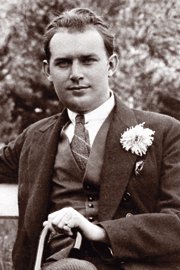 W
WJiří Wolker was a Czech poet, journalist and playwright. He was one of the founding members of KSČ - Communist Party of Czechoslovakia - in 1921.
 W
WXia Minghan was an early leader of the Chinese revolution, revolution martyr, and a pioneer of Communist Party of China (CPC). He was arrested and executed by the Kuomintang (KMT) in 1928.